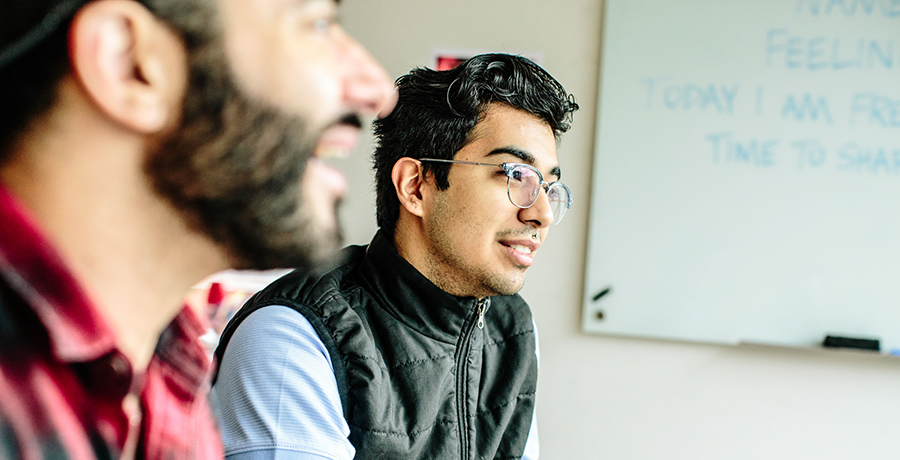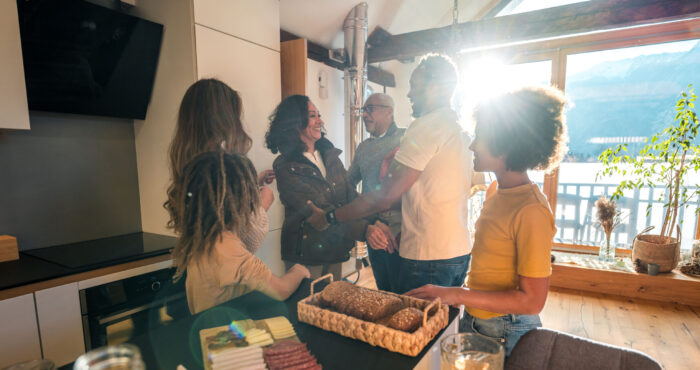What does it mean to “graduate” from a substance use counseling program?

A year and some months ago, I was invited to attend a “graduation” ceremony for a substance use counseling program at San Francisco AIDS Foundation (the Stonewall Project).
“What does that mean?” I thought. “How does one graduate from a lifelong affliction?”
But when I learned this graduation was coming up, some part of me who had once lurked in the shadows perked up. Perhaps it’s my time, I considered. What does it even mean to “graduate”?
I’ve been enrolled in Stonewall’s counseling services for the last 2.5 years. I have had 3 different one-on-one counselors over my time. I’ve attended many different groups, from “Friday Night Harm Reduction,” to Wednesday night’s “Targeted Abstinence,” “Smart Drinking,” “Adventures in Abstinence,” and Tuesday night’s “Emotions and Mindfulness,” which became my “home group,” or home base, essentially.
I’ve attended, for the most part, at least one group per week for the last 2.5 years, which means I’ve attended and participated in well over 125 support groups in addition to my individual therapy. I’ve thoroughly explored various recovery pathways, like abstinence, targeted abstinence, substance use management, and other essential tools like mindfulness, meditation, writing, and even community organizing.
For me, though, beyond the numbers and stats, graduation means something both massive and subtle all at once. It’s being atop the mountain that once seemed insurmountable. But then you took the first step. Then the next. Soon enough, you’re at the top, whatever that means for you. Reaching the top doesn’t necessarily mean achieving abstinence, it means achieving your goals–reaching your destination. Doesn’t mean you won’t stumble along the crest. Doesn’t mean you won’t slip down a ridge. Doesn’t mean there won’t be higher or lower or different mountaintops and different routes. The point is, you made it to the top. I made it, I should say.
There was a time in my life not too long ago when this addiction was what dominated my headspace. Don’t get me wrong, it’s still an occupying force on my left shoulder, whispering salty somethings into my ear. But there was a time when… I couldn’t see anything beyond this. When all my hopes and dreams, all the possibilities and my limitless potential had vanished into a wisp of smoke. There was a time when everything and everyone around me was a threat—and to be fair, some of them really were. But some of them weren’t. There was a time when the world had hardened, and I no longer saw the rose, only the thorn.
Graduating to me means learning to love again. To love myself. To love all the parts of myself I had hidden away, hurriedly swept under the rug when there was an audience. It means learning to love humans again. Not all of them want to hurt me. In fact, some of them really love me. And the ones that don’t, well, that’s what boundaries are for. I am strong enough now to say, “I don’t need your approval to continue on with my life. I don’t need your apology. I know my worth.” Graduating means relinquishing the shame that once choked me.
Graduating means arming myself with all the tools I picked up along the way, the DBT worksheets, the mindfulness (hint: that’s a big one), the meditation, the books, the community. It means leaning on others when I need to, spending time alone when it feels healing, it means shifting my focus to other parts of my life—myself—that I’d perhaps forgotten along the tumultuous journey. Things like my career, relationships, furthering my education. Installing structures around myself to support me if I fall.
I have a deep well of gratitude for Stonewall. I will never forget when I first went to rehab back in 2014 and they took me to my first AA meeting. When they got to me, they said, “Stand up and say your name and that you’re an alcoholic.” I was confused. I had a cocaine problem, not alcohol. They hissed it at me again, so I just said it. “My name is Dave and I’m an alcoholic.” It felt like glue in my mouth. It didn’t feel right or true; sure, I’ve had some problematic drinking in my life, but was I a full-fledged alcoholic? No, I didn’t think so. I didn’t drink that differently than most people I knew, to be honest.
At this point, the conventional recovery world will tell you I was in denial. I begged to differ. And Stonewall was the first program in the country that begged to differ with me. “A drug is a drug is a drug”, the folks at my rehab (and most in the recovery world) told me, as if my relationship to cannabis was equally destructive to that of cocaine. I just couldn’t buy it—for myself. For some people, I’m sure a drug is a drug IS a drug. But that wasn’t the case for me. Stonewall gave me permission to honestly explore my relationships to differing substances—without shame.
Thank you to Stonewall—not just the programs, but the employees and interns who change lives everyday, and to the participants, who have given me endless lessons of wisdom, love, and resilience over these last couple years. Graduating means commanding my story. No one gets to tell me how to work my own recovery pathway anymore. I do.
Find substance use & harm reduction services at SFAF
Substance use counseling sessions and group sessions are available both virtually and in-person at this time. Please refer to this schedule of the Stonewall groups to learn more or visit us online. Call 415-487-3100 or email stonewall@sfaf.org with questions.
Additional harm reduction services are available through our Syringe Access Services program.









